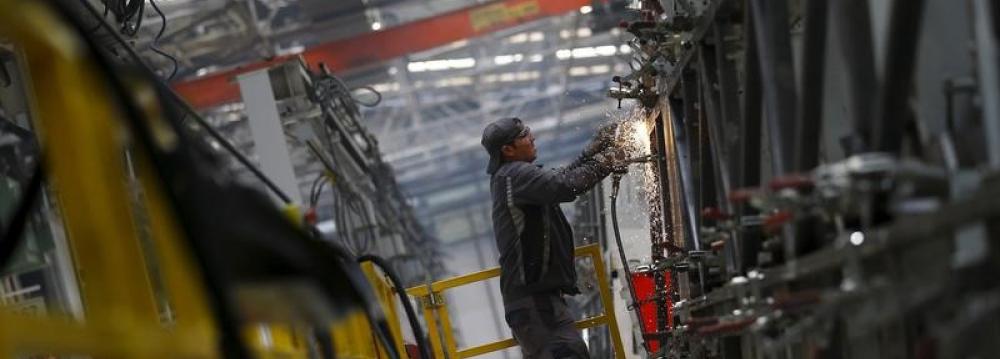The Turkish government has revealed extraordinary measures to revive the Turkish economy, which has been hit by massive losses in the Turkish lira, vowing to make 2017 a “saving year” for the public sector and introducing a big fund to accelerate credit volume and create 600,000 new jobs.
Announcing the results of the latest economy board meeting in Ankara on Dec. 8, Prime Minister Binali Yildirim said the government would introduce up to 250 billion liras ($73 billion) in credit line that was particularly aimed at small- and medium-sized enterprises to ease the cash flow problem, Anadolu Agency reported.
“The new fund under the treasury’s guarantees will help the banking system reaccelerate its credit growth,” he said.
In export credits, the guarantee will be 100%, while it will be implemented to a degree of 90% in SMEs and 85% in trade credits, Yildirim added.
Accordingly, the government will also give additional support to projects with an investment incentive to the manufacturing industry in a move to encourage and increase private sector investments in 2017.
“The government will increase the investment contribution rate a further 15% for investment expenditures in the manufacturing sector in 2017. We will thus fully implement a corporate tax cut,” said the prime minister.
Yildirim added that the value added tax for construction investments would be re-funded for 2017 as an additional resource for construction projects. Social security premiums in the first quarter of 2017 will be postponed nine months without interest, he said.
In addition, the premier also said the Turkish Employment Agency would provide vocational training to 500,000 people in 2017 in the private sector as another 100,000 would continue to work for benefit of society program, mainly in the country’s eastern and southeastern regions.
Yildirim also noted that the capital base of Eximbank, which is at around $3.7 billion, will be increased dramatically next year to further support exporters.
“We will also put zero interest rates on foreign exchange loans which are offered to Turkish construction companies operating abroad for their Turkey-made goods and services acquisitions. They will not be charged any interest rate for the loans, which are used by these companies for locally made goods and services to be used abroad. These costs will be covered by Eximbank as well,” he said.
“Our main aim here is to diversify our exports, raise their added value and increase our export volume,” he added.
Anxiety Rises
The economy is in decline and young, educated Turks are leaving the country. Foreign investment has stalled and business owners are anxious about the future.
Turkey has seen one disaster after another this year, from suicide attacks by jihadists to the coup attempt in July, followed by President Recep Tayyip Erdogan’s crackdown on his critics. Now the economy is faltering and investors are anxious.
The Organization for Economic Cooperation and Development has revised its growth forecast for Turkey downward from 3.9 to 2.9% this year. Ege Yazgan, vice director at Istanbul’s Bilgi University, predicts just 2.5% growth though.
“This is far too little for an emerging economy like Turkey,” the economics professor said. “In light of population growth, we need 5 to 6% sustainable growth to maintain our employment level.”
With parliament scheduled to vote in January on the introduction of a presidential system that would give Erdogan even more power, many business leaders also feel uneasy. The president has already placed about 600 companies under government administration in recent months, due to their alleged connections to his archenemy Fethullah Gulen.
The ongoing state of emergency and the crackdown on the Gulen movement after the failed coup in July attempt are generating uncertainties that are taking a toll on the Turkish economy, economist Selva Demiralp from Koc University in Istanbul told the Hurriyet Daily News recently.
The debate over shifting to a presidential system, steady divergence from the West, and the new US administration’s economic policies, also generate uncertainty and do not bode well for Turkey’s economic situation, Demiralp added.


